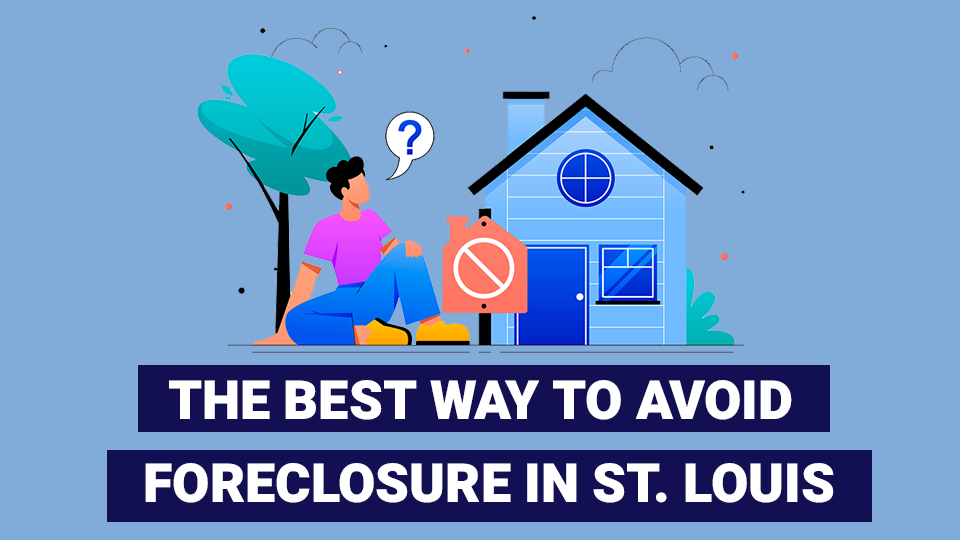The Best Way to Avoid Foreclosure in St. Louis

Facing foreclosure can be a stressful and overwhelming experience for homeowners in St. Louis. You may feel like you’re running out of options and time. However, these foreclosure prevention tips can help you sell your home before it goes to auction.
Understanding the foreclosure process and exploring your options is crucial. The best way to avoid foreclosure is to act quickly and seek professional advice. This article will guide you through the foreclosure process in Missouri and provide effective strategies to prevent losing your home.
How Does Foreclosure Work in Missouri?
In Missouri, most foreclosures are nonjudicial, meaning they don’t require court approval. The process typically begins when you miss a mortgage payment. Your lender will notify you of default after your payment is ten days late.
If you don’t respond to the notice, the lender will proceed with a foreclosure sale. They must publish a notice of sale in a local newspaper for 20 consecutive days. The sale usually occurs on the county courthouse steps, where your home is auctioned to the highest bidder.
What Are the Consequences of Foreclosure?
Foreclosure can have severe and long-lasting impacts on your financial life. You’ll lose your home and face significant credit damage. It can also affect your ability to buy a new home.
Credit Damage
A foreclosure will remain on your credit report for seven years. It can lower your credit score by 100 points or more. This damage makes it difficult to obtain new credit or loans. You may face higher interest rates on future borrowing due to the foreclosure.
Difficulty Buying a New Home
After a foreclosure, you’ll face challenges when buying another home. Most lenders require a waiting period before approving a new mortgage. This period can range from three to seven years, depending on the type of loan. You may need to rebuild your credit and save for a larger down payment.
Deficiency Judgment
In Missouri, lenders can pursue a deficiency judgment after a foreclosure sale. You may still owe money if the sale doesn’t cover your debt. The lender can sue you for the remaining balance, potentially garnishing your wages or seizing other assets. This additional debt can further complicate your financial recovery after foreclosure.
Tax Consequences of Canceled Debt
You may face tax consequences if your lender forgives any part of your mortgage debt. The IRS often treats forgiven debt as taxable income. Report this amount on your tax return, and you may owe additional taxes. Consult a tax professional to understand the potential tax implications of foreclosure.
5 Ways to Avoid Foreclosure
Exploring foreclosure prevention tips can help you keep your home. There are several options available to homeowners facing financial difficulties. Let’s examine five effective strategies that could be the best way to avoid foreclosure in your situation.
1. Refinancing
Refinancing involves replacing your current mortgage with a new loan with better terms. You may be able to lower your monthly payments or interest rate. However, refinancing typically requires good credit and home equity. It may not be an option if you’re behind on payments or have significant debt.
2. Loan Modifications
A loan modification changes the terms of your existing mortgage to make it more affordable. Your lender may lower your interest rate or extend your loan term. This option can help if you’re experiencing long-term financial hardship. However, not all lenders offer modifications, and the process can be lengthy.
3. Short Sale
In a short sale, you sell your home for less than you owe on the mortgage. Your lender must approve this option before you can proceed. A short sale allows you to avoid foreclosure and may have less impact on your credit. However, you’ll lose your home and may still owe taxes on the forgiven debt.
4. Deed in Lieu of Foreclosure
This option involves voluntarily transferring your property’s title to the lender to satisfy your mortgage debt. It can be faster than foreclosure and may have less impact on your credit. However, you’ll still lose your home, and there may be tax consequences for the forgiven debt.
5. Bankruptcy
Filing for bankruptcy can temporarily stop foreclosure proceedings through an automatic stay. It may allow you to keep your home while restructuring your debts. However, bankruptcy has serious long-term consequences for your credit and financial future. It should be considered as a last resort.
Sell Your House As-Is to Avoid Foreclosure in St. Louis
Selling your house for cash can be one of the most effective foreclosure prevention tips. You can avoid the lengthy traditional selling process and quickly resolve your mortgage debt. This option allows you to sell your home as-is without making repairs or improvements
Cash home buyers in St. Louis can often close the sale in a matter of days. This speed can be crucial when you’re facing imminent foreclosure. By selling your house for cash, you may be able to pay off your mortgage and avoid the negative consequences of foreclosure.
Get Your Fair & Honest All-Cash Offer Today! No Obligations!
We will get back to you as soon as possible.
Please try again later.
By submitting this form, you agree to our Conditions of Use and Privacy Policy. You may receive both automated and personal text messages. Reply STOP at anytime to opt-out.


